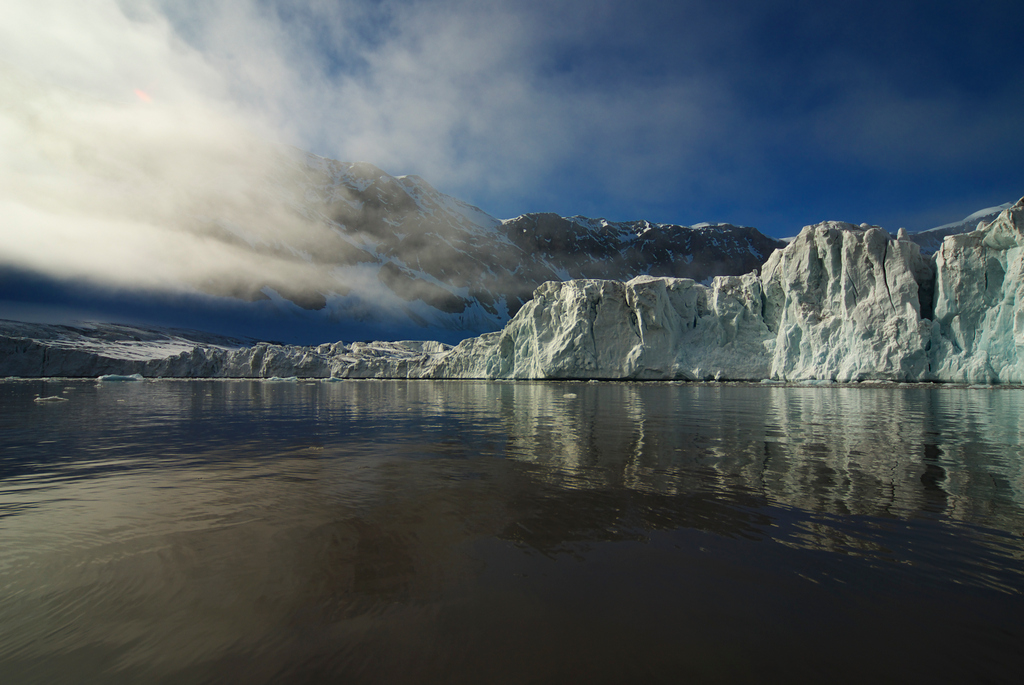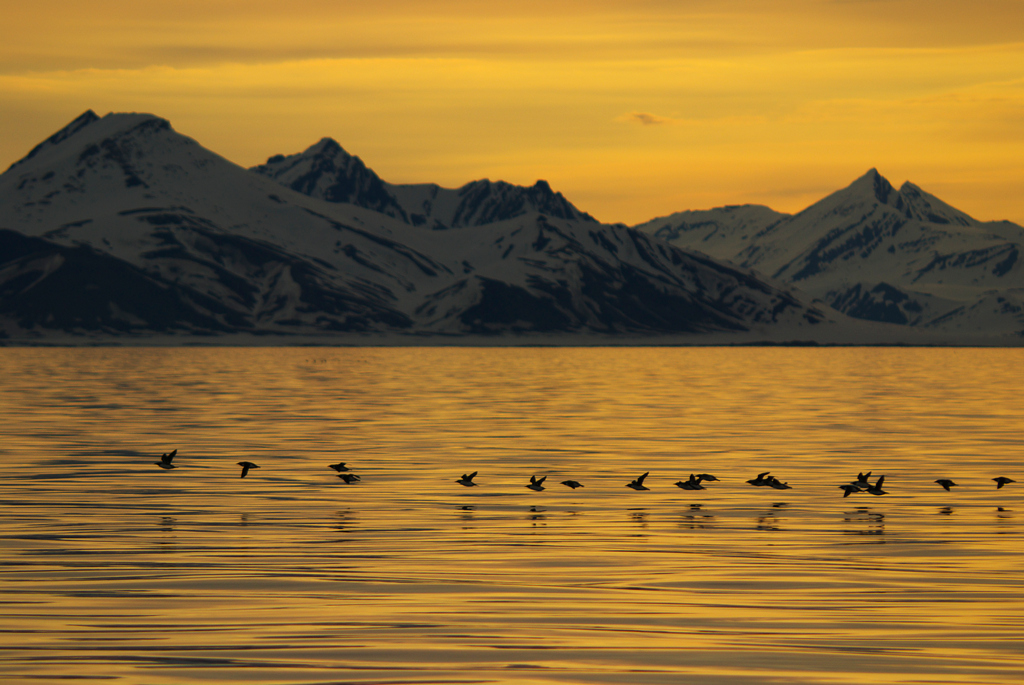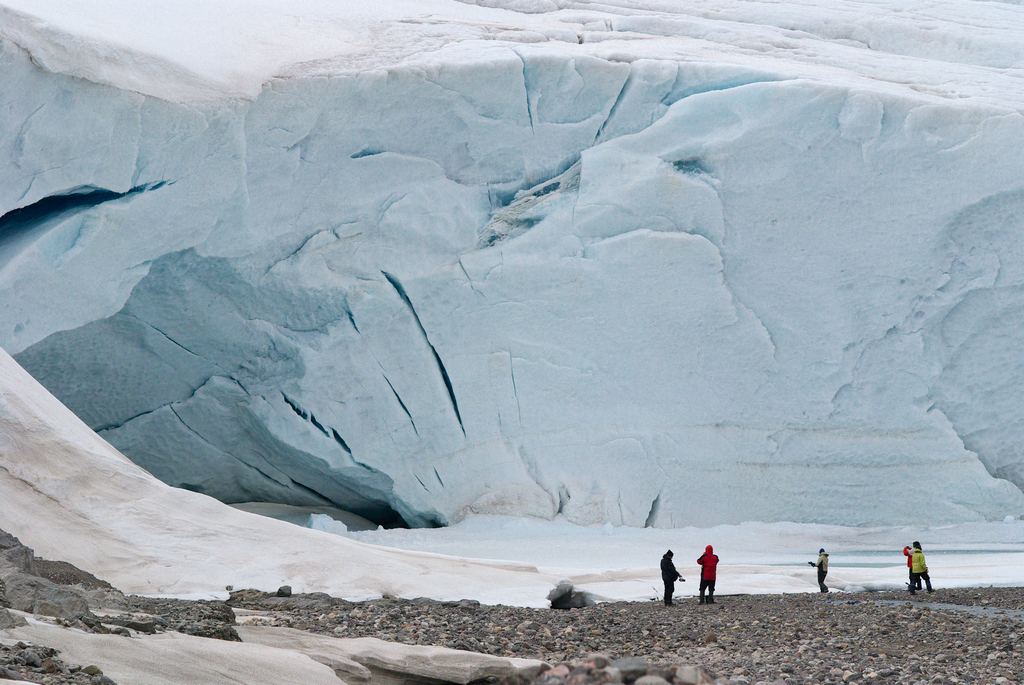The project “RAW – Retreat And Wither” – What is the influence of glaciers recession from tidewater to land-based on the marine biological production and biogeochemistry in the Arctic? received funds within the GRIEG competition funded by the Norwegian Financial Mechanism 2014-2021 (No. of agreement: UMO-2019/34/H/ST10/00504).

The productivity of marine ecosystems is an important factor conditioning element and organic matter cycling on Earth. It also influences the composition of the atmosphere and thus to shape our climate. The world’s oceans are a great source of O2 and sink for atmospheric CO2. They absorb about 22% of anthropogenic CO2 emissions and therefore limit global warming. The Arctic Ocean, due to its relatively high productivity and low water temperatures enhances CO2 solubility, is responsible for as much as 5-14% of the global CO2 uptake by marine regions. This makes the Arctic marine ecosystems important components in the global carbon cycle. Recent findings show that Arctic fjords are especially effective in absorbing atmospheric CO2. The biogeochemistry of the fjord systems is, however, very complex and not yet fully understood. The great unknowns that remain include the effect of glacial retreat on the CO2 budget of coastal waters.

Climate change is disproportionately strong in the Arctic, which is the most rapidly warming region on Earth. One of the observable consequences of the transformation of the Arctic environment is the rapidly receding glaciers. Due to glaciers calving, submarine melting and drainage of meltwater through glacial outflows, glaciers are recognized as the main source not only of freshwater supply into the fjord, but also mineral, organic matter, and nutrients. All nutrients have in the past been argued to affect marine primary productivity in the areas where there are tidewater glaciers. However, there is a growing body of evidence suggesting that deepwater upwelling at the terminus of tidewater glaciers causes the most important increases in primary production. These deep waters are usually rich in nutrients, including nitrogen. The opposite situation is near the land-based glacier inputs, where low nitrogen availability in meltwater limits productivity. Furthermore, sustained glacier recession will change the glacial regime from predominate tidewater to land-based. The current oceanographical, sedimentological, and biogeochemical conditions will, therefore, adopt more characteristics of land-based glaciers and non-glacial inputs. This, in turn, may alter the total nutrient flux supplied to the euphotic zone. Therefore, it remains uncertain how the marine ecosystem productivity will respond to future changes in the Arctic and so this project aims to test the following hypothesis:
The warming-driven glacier recession causes a reduction in marine biological production in polar coastal regions and seas due to:
- unfavorable nutrient balance caused by a reduction in nutrient-rich deep water upwelling from buoyant meltwaters plumes;
- shallowing the euphotic zone caused by increased surface suspended sediments concentration;
- reduction of water mass exchanges and sediment-bound nutrients transfer between the fjord/open sea and newly formed bay due to hydrography and formation of natural sediment traps.

The proposed project directly addresses the problem of changing productivity in the Arctic fjords due to glacial retreat. As such it is of great importance for understanding the role of polar coastal regions for global carbon cycling in the future. As the pelagic productivity shapes the structure and condition of the entire ecosystem, the project results will also provide important knowledge to assess the ecological consequences of the changing climate in the delicate Arctic ecosystems.
This research project is truly interdisciplinary and wide-ranging, with marine sedimentology, hydrography, biogeochemistry, ecology, land hydrology with glaciology fields providing a much-needed holistic approach to the whole system. Simultaneous marine measurements are planned in closely located catchments having similar bedrock but different stages of the glacial recession (tidewater, land-based and lack of glacier). A comprehensive approach to the investigation of nutrient cycling, beginning from delivery from land to the marine environment, to the marine production and utilization, will be performed. Finally, because the goal of the project is aiming at studying the real, on-going process that is expected to affect the whole Arctic coastal ecosystems, the planned research is a kind of natural experiment of the crucial problem that the Earth system is now facing.
- Moskalik M., Dąbrowska A., Dragańska-Deja K., Hodson A., Kuliński K., Stachnik Ł., Szymczycha B., Trudnowska E., Yde J.C., ”RAW – Retreat And Wither” – What is an influence of glaciers recession from tidewater to land-based on the marine biological production and biogeochemistry in Arctic?



